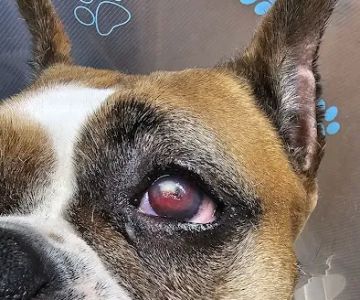Recognizing the Early Signs of Kidney Problems in Pets
Kidney problems in pets, especially in cats and dogs, can be tricky to spot at first. Our furry companions can be very good at hiding their discomfort. However, there are certain signs of kidney problems in pets that you, as a pet owner, can learn to identify. Being aware of these symptoms early on can make a big difference in your pet's treatment and recovery. In this article, we'll explore the common signs of kidney disease and failure in pets, what causes it, and how you can manage your pet's kidney health effectively.
What Causes Kidney Problems in Pets?
The kidneys play a vital role in filtering waste from the bloodstream, regulating blood pressure, and maintaining the balance of fluids and electrolytes. Kidney disease in pets can develop for a number of reasons, including infections, toxins, or aging. Chronic kidney disease (CKD) is particularly common in older pets, while acute kidney failure (AKF) can occur more suddenly, often due to poisoning or trauma. Understanding the causes can help you take proactive steps to prevent or manage kidney issues in your pet.
1. Aging
As pets age, their kidneys naturally lose some of their ability to function properly. This gradual decline can lead to chronic kidney disease, especially in older cats and dogs. It's important to monitor your pet's health regularly as they age, especially their water intake and urination patterns.
2. Toxins
Exposure to certain toxins, such as antifreeze, certain medications, and some plants, can cause acute kidney failure in pets. If you suspect your pet has ingested a toxic substance, contact your vet immediately for treatment.
3. Infections and Other Conditions
Urinary tract infections, high blood pressure, and diabetes can all lead to kidney problems in pets. These underlying conditions often contribute to kidney failure, so managing them carefully is key to maintaining your pet's kidney health.
Common Symptoms of Kidney Problems in Pets
Recognizing the signs of kidney disease in pets is crucial. Early detection can prevent further damage and help your pet live a longer, healthier life. Here are some common symptoms to look out for:
1. Increased Thirst and Urination
If you notice that your pet is drinking more water than usual or needing to urinate more frequently, it could be a sign of kidney problems. The kidneys are responsible for regulating water balance in the body, and when they aren't working properly, pets often become excessively thirsty.
2. Loss of Appetite and Weight Loss
A decrease in appetite and noticeable weight loss are common signs of kidney disease in pets. This can occur because toxins build up in the bloodstream, affecting your pet's digestive system and overall well-being.
3. Vomiting and Nausea
Vomiting is another sign that your pet may be suffering from kidney failure. The buildup of waste products in the blood can cause nausea, leading to vomiting episodes. This is especially common in more advanced stages of kidney disease.
4. Lethargy and Weakness
Pets with kidney problems may appear more tired than usual. Lethargy and weakness are common symptoms of kidney disease, as the body struggles to cope with the loss of kidney function.
How to Care for a Pet with Kidney Disease
If you suspect your pet is suffering from kidney problems, it's important to consult a vet for a proper diagnosis. After diagnosis, there are several things you can do to help manage your pet's condition and improve their quality of life:
1. Provide a Kidney-Friendly Diet
Feeding your pet a diet specifically designed for kidney health can help manage kidney disease. These diets are formulated to reduce the workload on the kidneys and provide essential nutrients. Your vet can recommend the best food for your pet's specific condition.
2. Ensure Proper Hydration
Dehydration can worsen kidney disease, so it's essential to encourage your pet to drink water. Consider using a water fountain or adding water or low-sodium broth to their food to increase fluid intake.
3. Regular Vet Check-Ups
Frequent vet visits are critical for monitoring the progression of kidney disease. Your vet will perform blood tests, urine tests, and other diagnostic procedures to keep track of your pet's kidney function.
4. Medication and Treatments
Depending on the severity of the condition, your vet may prescribe medications to manage symptoms such as nausea, high blood pressure, or electrolyte imbalances. In some cases, more advanced treatments like fluid therapy or dialysis may be necessary.
Case Study: A Real-Life Example
One of the most inspiring cases I encountered involved a senior cat named "Whiskers." Whiskers was brought in after her owner noticed that she had become increasingly lethargic, lost her appetite, and was drinking excessive amounts of water. After conducting blood tests and urinalysis, we diagnosed Whiskers with early-stage chronic kidney disease. Through a combination of a special kidney-friendly diet, increased hydration, and regular vet visits, Whiskers has maintained a good quality of life for several more years. Her story highlights the importance of early detection and proper care in managing kidney issues in pets.
Conclusion
Kidney problems in pets can be serious, but with early detection and the right care, many pets can continue to live happy, healthy lives. By being aware of the signs and symptoms, taking preventive measures, and working closely with your veterinarian, you can help safeguard your pet's kidney health. If you're looking for expert guidance, visit Hidden Brook Veterinary for the best advice and products to support your pet’s health.












